The 64th ACMA Annual Summit highlighted the growth, self-reliance, and global competitiveness of tier suppliers, writes Richa Tyagi.
Automotive Component Manufacturers Association of India (ACMA) returned with the 64th ACMA Annual Summit on close heels of the SIAM Annual Summit. The industry and government representation overlapped and
targeted resolutions were deliberated on. The theme of ‘Viksit Bharat – Fostering Self-Reliance & Global Competitiveness in Mobility Components,’ continued to be the common agenda. During the session, Shradha Suri Marwah, The President of ACMA and CMD of Subros Ltd., highlighted the automotive industry’s remarkable transformation as India moves towards Viksit Bharat. “The Indian auto component industry is on the cusp of extraordinary growth, achieving a significant milestone of USD 74.1 billion in FY2024. With a strong focus on cleaner energy, sustainability, circularity, and industry collaboration, the sector is well-positioned to become globally competitive, meeting both present demands and future challenges.”
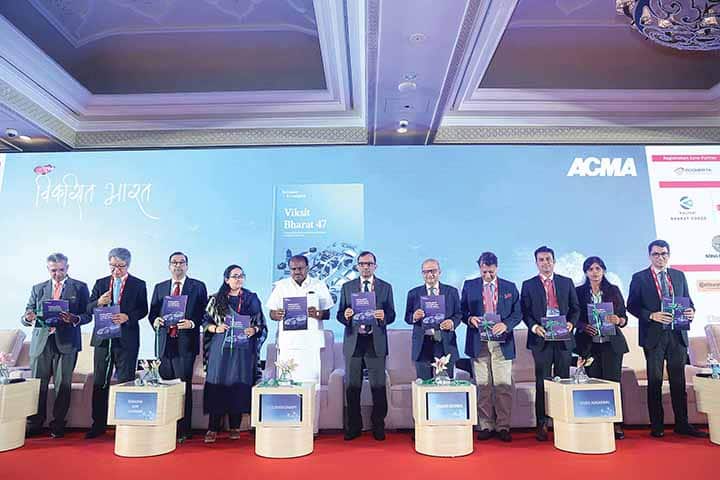 Drawing over 1,200 key participants, including OEMs, component manufacturers, government officials, and industry experts, the event was once again marked with the presence of distinguished figures including Nitin Gadkari, Union Minister of Road Transport & Highways; Piyush Goyal, Union Minister of Commerce & Industry who have been known to set ambitious targets for the automotive industry. H.D. Kumaraswamy, Union Minister of Heavy Industries; Jitin Prasada, Union Minister of State of Commerce & Industry and Electronics and Information Technology; Dr Pawan K. Goenka, Chairman of SCALE and IN-SPACe; Vinod Aggarwal,
Drawing over 1,200 key participants, including OEMs, component manufacturers, government officials, and industry experts, the event was once again marked with the presence of distinguished figures including Nitin Gadkari, Union Minister of Road Transport & Highways; Piyush Goyal, Union Minister of Commerce & Industry who have been known to set ambitious targets for the automotive industry. H.D. Kumaraswamy, Union Minister of Heavy Industries; Jitin Prasada, Union Minister of State of Commerce & Industry and Electronics and Information Technology; Dr Pawan K. Goenka, Chairman of SCALE and IN-SPACe; Vinod Aggarwal,
MD & CEO of Volvo Eicher Commercial Vehicles; Hisashi Takeuchi, MD & CEO of Maruti Suzuki India; and Sanjiv Puri, President of CII and MD of ITC made their presence felt too
ACMA and McKinsey & Co. once again released a joint study. Titled ‘Scaling Global Competitiveness and Self-Reliance,’ the report highlights the strong growth momentum in India’s automotive component sector, with an anticipated Compound Annual Growth Rate (CAGR) of seven to eight per cent. The industry is projected to breach the USD 200 billion valuation by 2030. At the summit, stakeholders advocated for key strategic measures, including tapping into export potential, boosting R&D and innovation investments, and enhancing quality and sustainability standards to strengthen the industry’s competitive standing on a global scale.
Vinod Aggarwal, Managing Director and Chief Executive Office of VECV (Former SIAM President), noted that the Indian automotive industry has exceeded a valuation of USD 240 billion, contributing 6.8 per cent to the nation’s GDP. He highlighted the sector’s significant impact on employment, both directly and indirectly, and voiced confidence that its GDP contribution will keep rising.
Echoing a similar sentiment, Sanjiv Puri, President of CII and Managing Director of ITC pointed at the automotive sector characterised by significant innovation. He urged the stakeholders to secure the future with a greater degree of advancements driven by new mobility trends, shifting government regulations, and other influences. Deliberating the advancements in the Indian automotive industry, Hisashi Takeuchi san, Managing Director and Chief Executive Officer of Maruti Suzuki India Ltd., opined, “Digitalisation and automation have become essential for maintaining and improving our competitiveness. Embracing self-reliance is crucial for increasing the global market presence of Indian vehicles.” He commended the Government of India for launching the Indian Semiconductor Mission, which significantly supports the vision of a truly Atmanirbhar Bharat and enhances the growth potential of the Indian automotive industry of which tier suppliers are the backbone.
Government support and initiatives
Dr Pawan Goenka, Chairman of SCALE and IN-SPACe at the Department of Space, Government of India, praised the significant advancements in quality and technology within the Indian mobility sector. He attributed this success to the strong performance of the country’s supply chains. “The Indian auto industry is vital to realising the vision of Viksit Bharat. I encourage the sector to focus on exports, invest in technology, and strengthen R&D efforts.” He quantified the growth potential like in the past edition and set realistic goals. For India to reach its goal of a USD 1.6 trillion automotive industry by 2047, this growth must be sustainable and comprehensive, he stressed.
Despite global challenges and rising logistics costs, the Indian auto component industry continues to thrive. “This fiscal year has seen increased exports, resulting in a significant trade surplus that underscores the sector’s resilience and growing global competitiveness,” remarked H.D. Kumaraswamy, Minister of Heavy Industries, Government of India. He linked the industry’s development as a crucial metric to achieving the Prime Minister’s vision of Viksit Bharat, as it brings together resources to promote innovation and collaboration. “Together, we can create a future that strengthens our economy and secures India’s position as a global leader in mobility, components, and advanced technology,” he stated.
Speaking to the audience, Piyush Goyal, Minister of Commerce and Industry, Government of India, highlighted the necessity of developing a road map for the future as India aims to become the third-largest economy within the next three years. He commended the competitiveness of the industry and shared his vision for a highly localised sector. Goyal highlighted the importance of regularly assessing, recalibrating, and resetting goals as we work towards the final mission of Viksit Bharat 2047. He articulated the objective of transforming India into a developed nation by 2047, advocating for self-reliance while engaging fairly on the global stage. He noted that as India is set to rise to the third-largest GDP in the coming years, the auto component industry will also expand, aiming for USD 100 billion in exports by 2030 and becoming one of the largest job creators in the country.
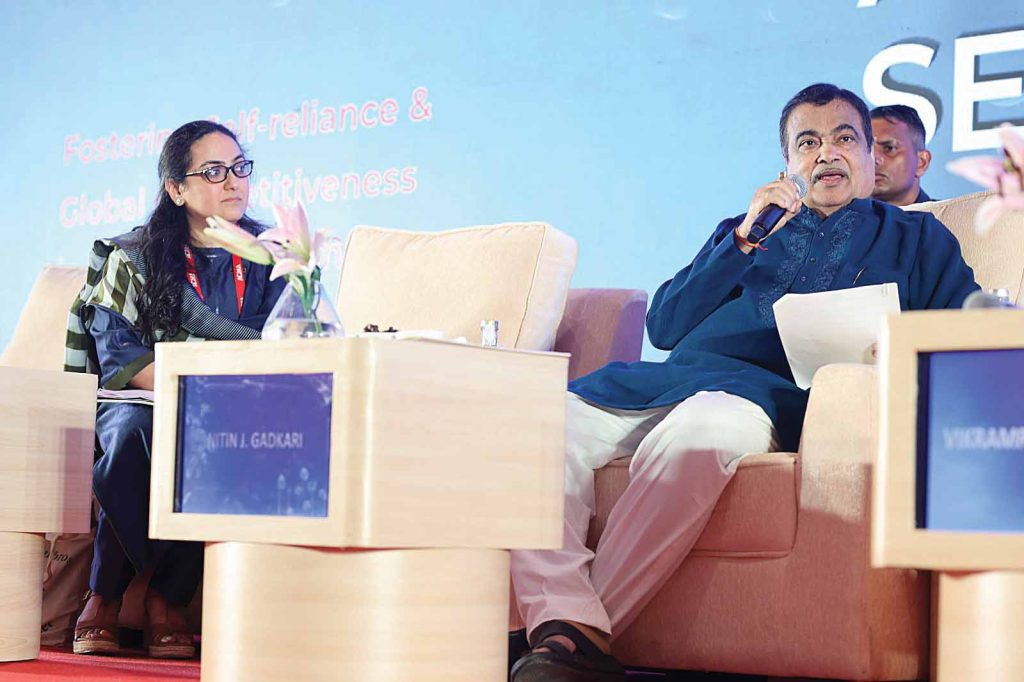
The Minister urged industry members to prioritise R&D. He encouraged participants to take advantage of the rupees one lakh crore Anusandhan National Research Foundation (ANRF) fund, and utilise it to support public-private academia partnerships in the auto sector. Goyal expressed confidence in India’s auto sector well poised to attract investment from abroad. “The industry can explore investment from EFTA countries and India should be ready to capture the opportunities in new-age technologies like Electric Vehicles (EVs) and its related ecosystem along with other upcoming opportunities like the bicycle sector,” he said. The Minister encouraged attendees to take advantage of the Government’s recent initiative to develop industrial smart cities for enhancing development and promoting exports. He urged the industry to focus on becoming indigenous suppliers and manufacturers to establish themselves as leading exporters of auto components. Highlighting India’s demographic advantage with 1.4 billion aspirational citizens, he pinned hopes on the significant potential for the auto sector to achieve economies of scale through the domestic market.
Jitin Prasada, Minister of State for Commerce & Industry and MeITY, GOI, served as the Chief Guest for the Valedictory Session. He encouraged the auto component sector to promote exports. He added that the component sector benefits from the growing auto sector in the country and urged the participants to create more jobs in the country. Prasada further noted that their efforts will complement the government’s effort in skilling and technology-focused policies.
ACMA Mobility Foundation
H.D. Kumaraswamy officially introduced ACMA’s new initiative, the ACMA Mobility Foundation. This pioneering initiative seeks to bring together key players from the software, electronics, and startup ecosystems to drive innovation and partnerships within the automotive sector. The ACMA Mobility Foundation is set to reshape India’s mobility landscape, strengthening the nation’s role as a global leader in advanced automotive solutions.
Talking about the initiative, Shradha said that the goal of this initiative is to broaden ACMA’s focus on mobility as a whole, engaging stakeholders from various sectors beyond traditional component manufacturers. “Our membership is expanding, and the boundaries are increasingly overlapping. ACMA is no longer solely seen as a representative body for component makers; we’re now recognised for our role in technology and electronics,” she reiterated. ACMA as per Suri is reaching out to the electronics and electrical sectors, including major players because collaboration across these fields is essential for future growth.
Gender diversity initiative
ACMA, in collaboration with the Gates Foundation and Good Business Lab, launched a new initiative aimed at boosting gender diversity within the manufacturing sector. This project will establish best practices and guidelines to foster more inclusive workplaces throughout the automotive components industry. The President shared her views on diversity, emphasising that it drives innovation a concept her organisation has repeatedly tested and validated. While more women are entering the workforce at entry-level positions, challenges persist at the mid-management and senior levels, where many women exit and later struggle to rejoin due to career gaps, she admitted. To address this, she highlighted the need for programs that focus on reskilling and upskilling, enabling women to return to positions that match their experience, rather than starting over.
Sunjay J Kapur, Immediate Past President, of ACMA and Chairman, of Sona Comstar, opined, “By capitalising on export opportunities, strengthening Indigenous R&D, and embracing digital transformation, we can accelerate towards the projected USD 200 billion mark by 2030. Navigating these disruptions will require a sharp focus on global opportunities and collaborative efforts from all stakeholders across the ecosystem. Together, we can drive innovation, build resilience, and position India as a leader in next-gen mobility- all contributing to the vision of Viksit Bharat.”
Summing up, Vinnie Mehta, Director General of ACMA, praised the event’s success, reflecting ACMA’s dedication to a self-reliant and competitive automotive industry. He affirmed the commitment to setting new benchmarks in quality and sustainability and supporting a transition to a circular automotive ecosystem.
The event also celebrated industry excellence by presenting the Quality Circle Competition Award and the new Gender Diversity Award. Team ‘Strategic Squad’ from ZF Rane Automotive India Pvt. Ltd. in Trichy was honoured as the winner of the 19th ACMA National Quality Circle Competition, while Team ‘Infinity’ from RSB Transmissions (I) Ltd. in Jamshedpur received the Gender Diversity Award, highlighting ACMA’s commitment to recognising innovation, quality, and inclusiveness. ACI


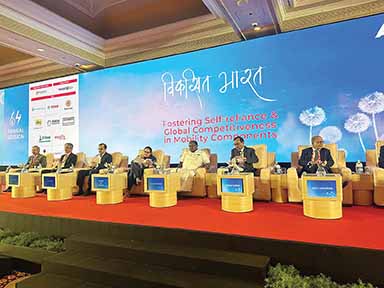
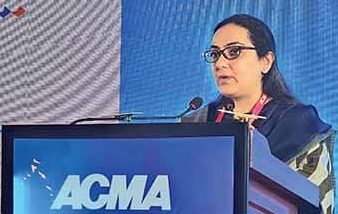
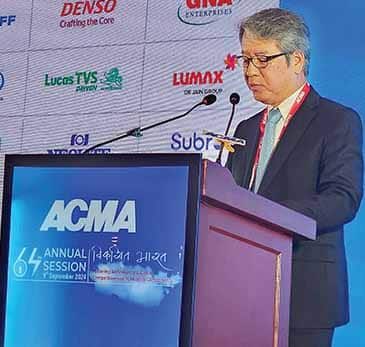

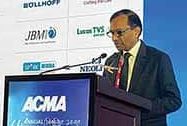
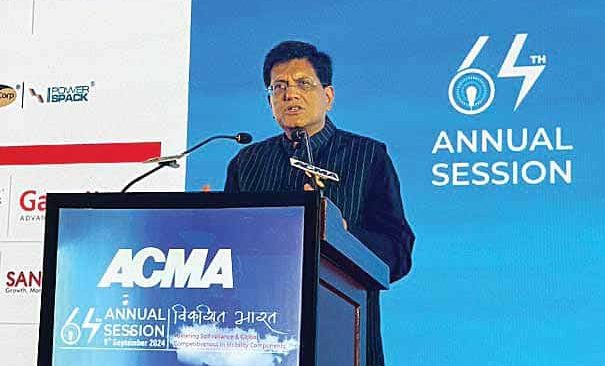
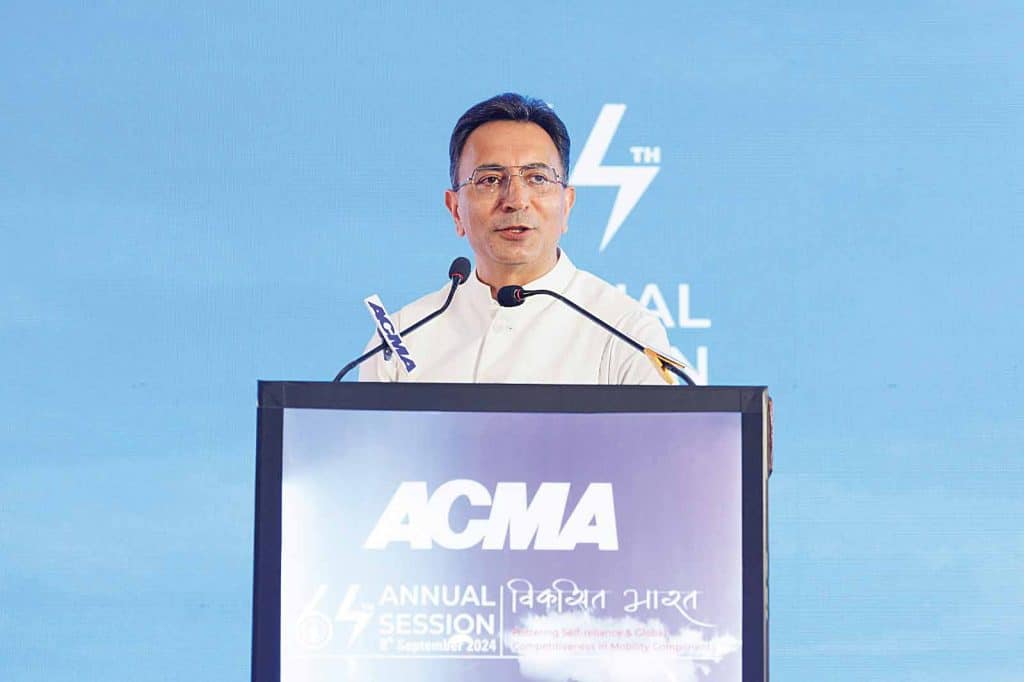
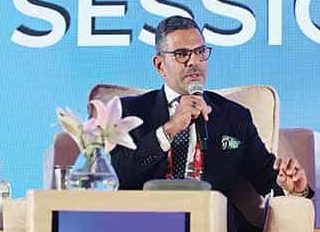




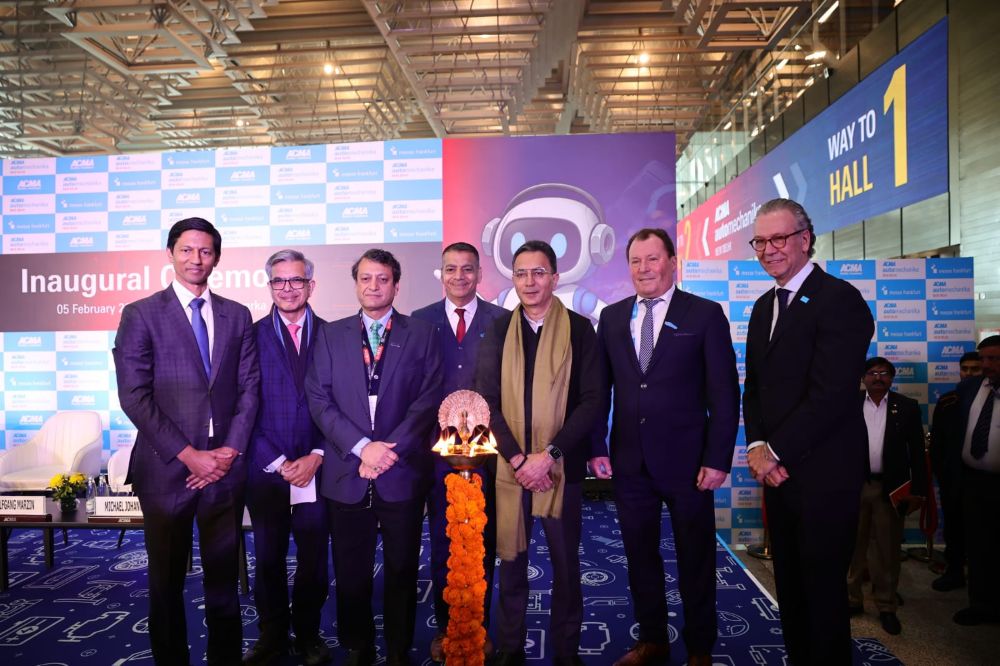
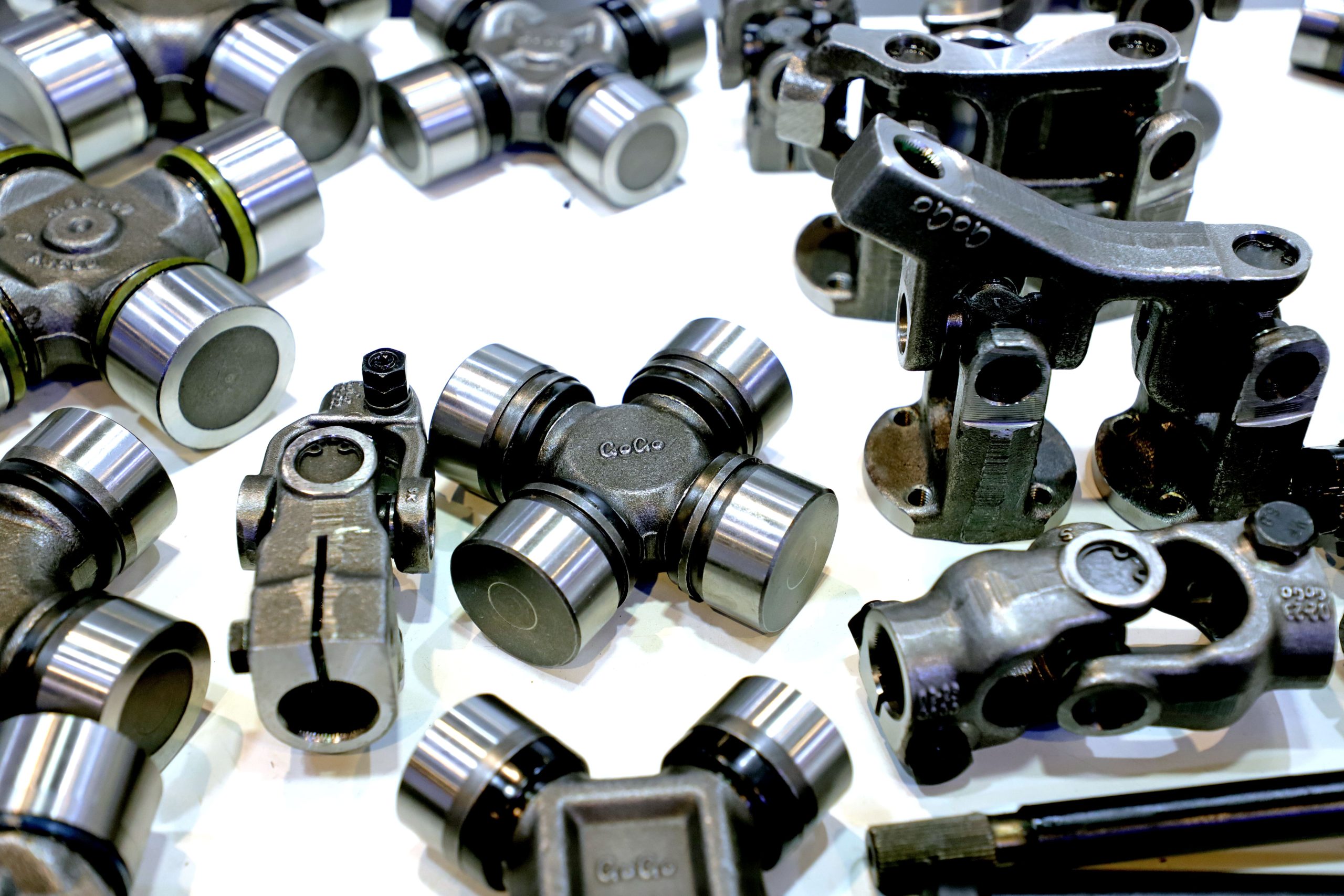
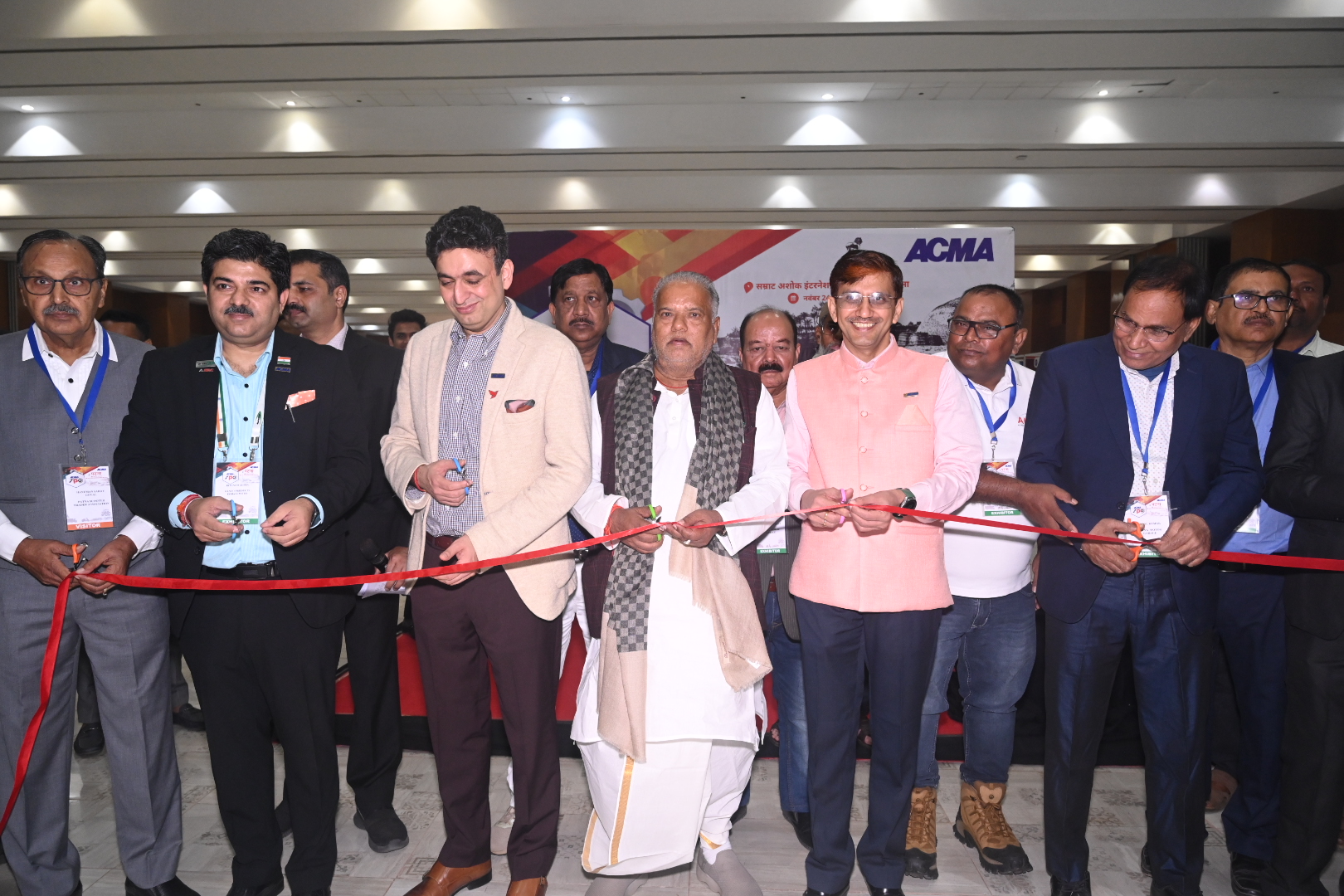
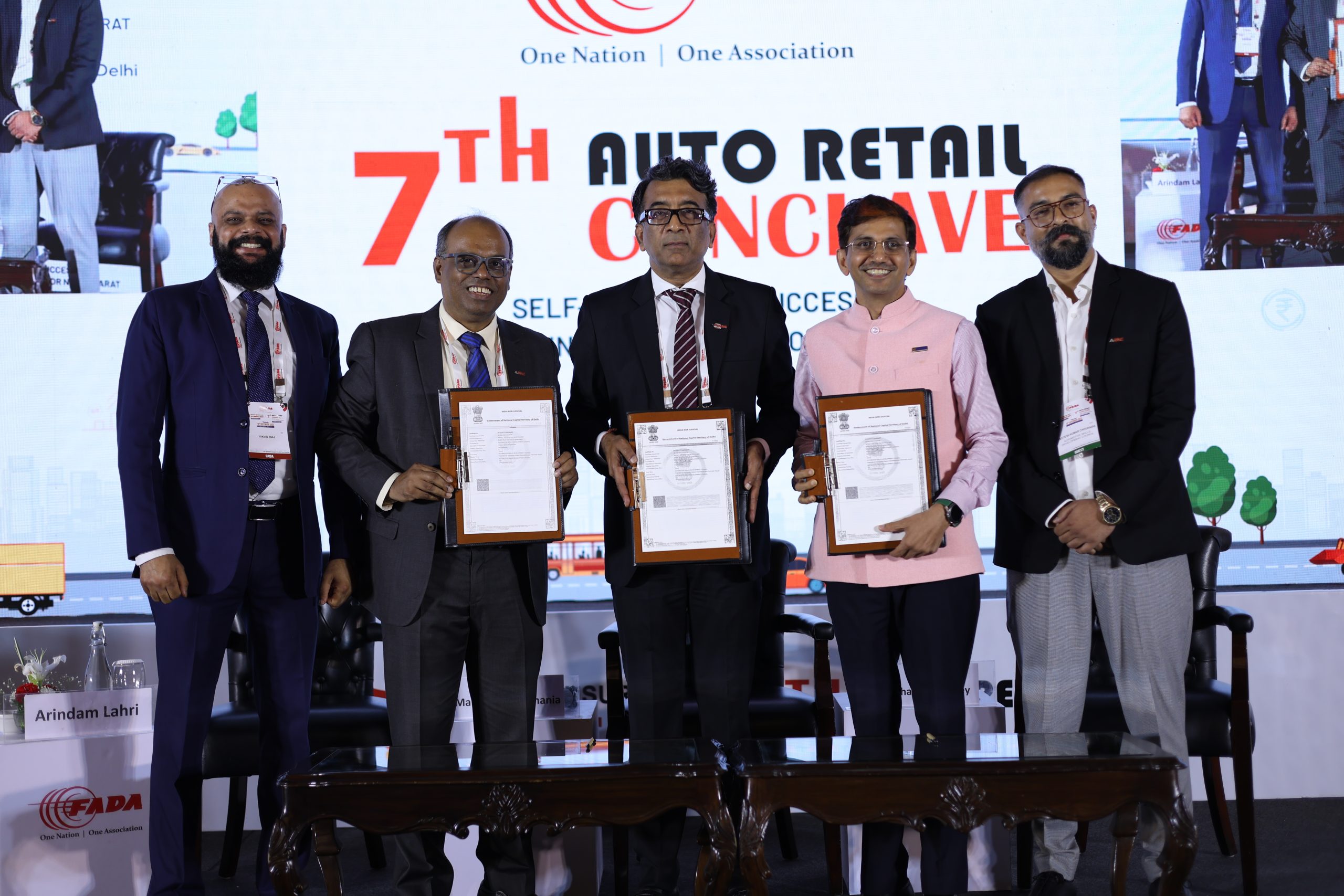
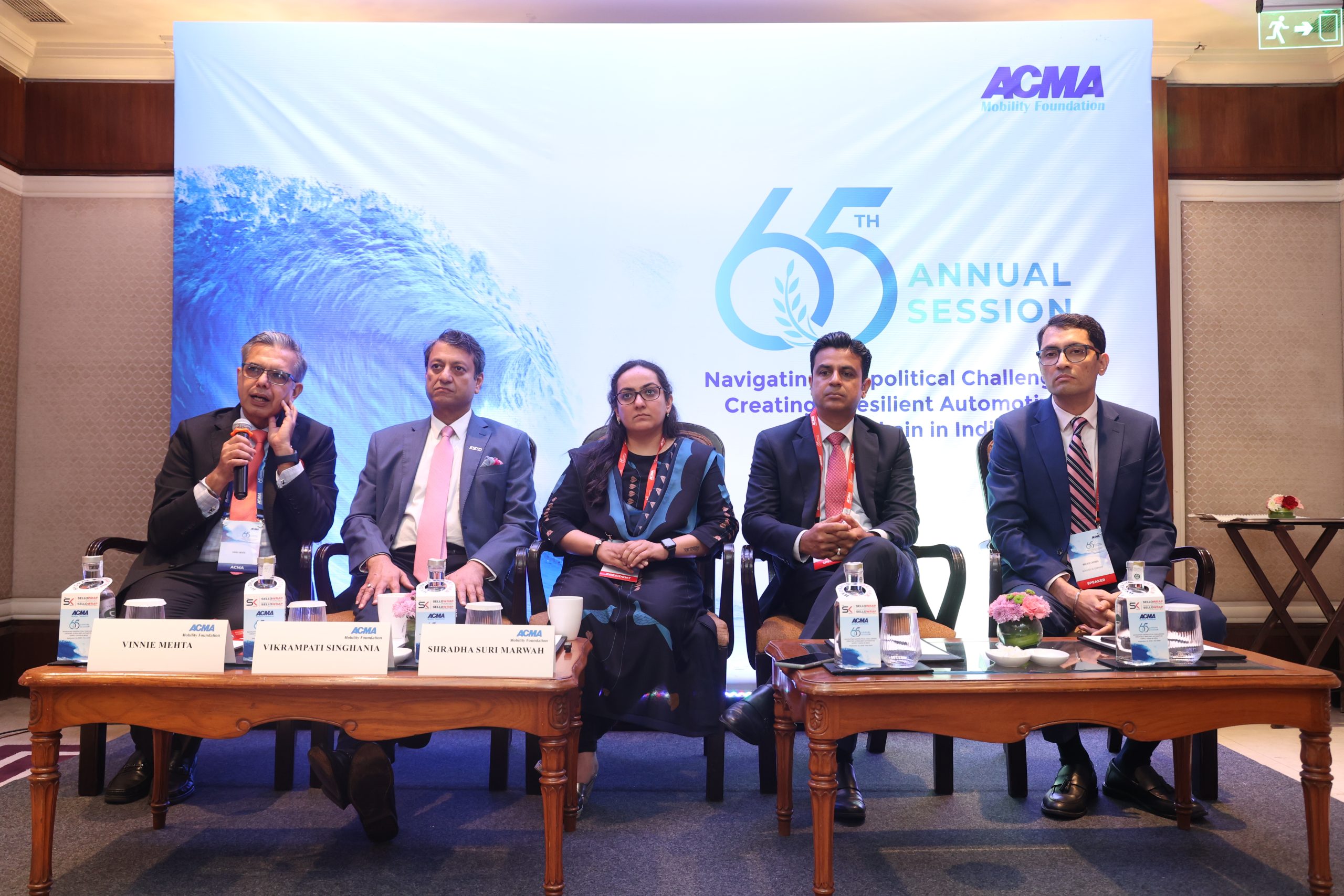
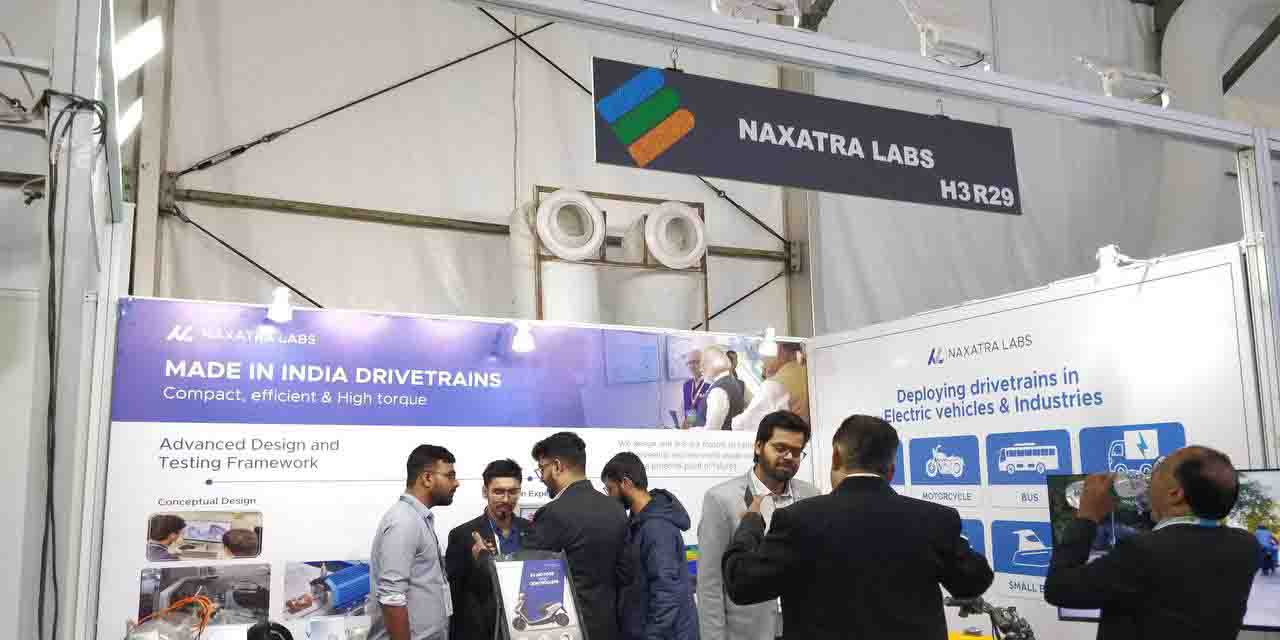
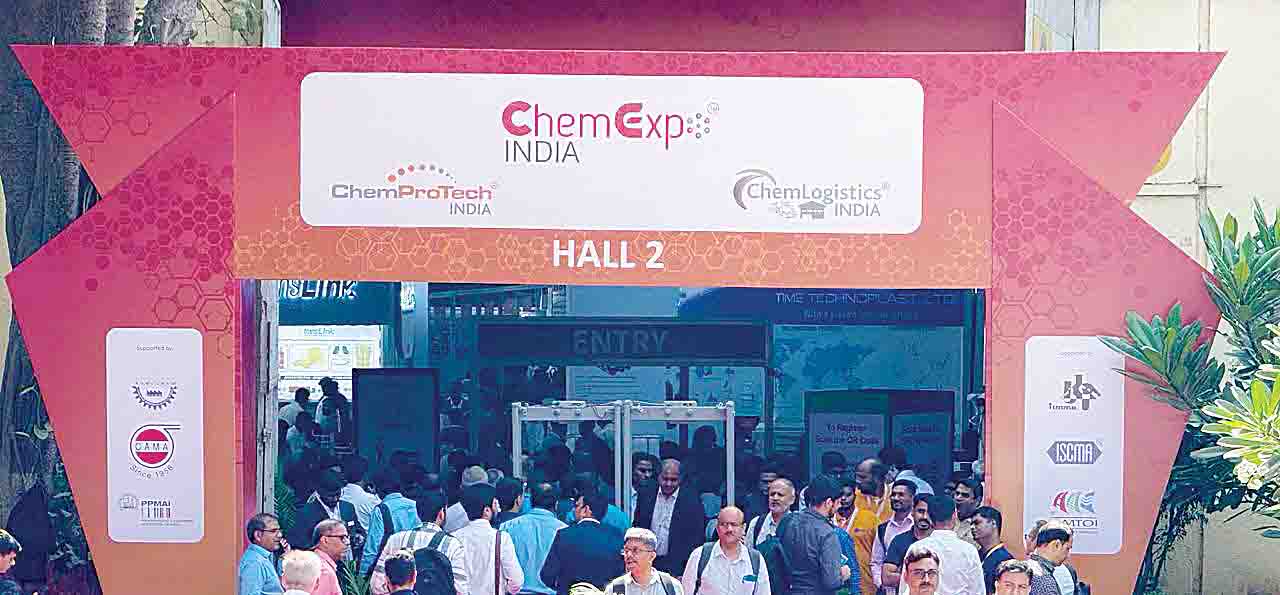
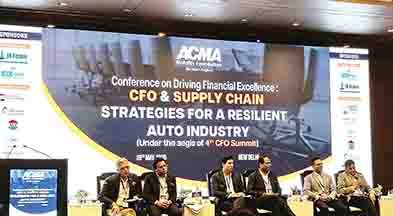

Leave a Reply